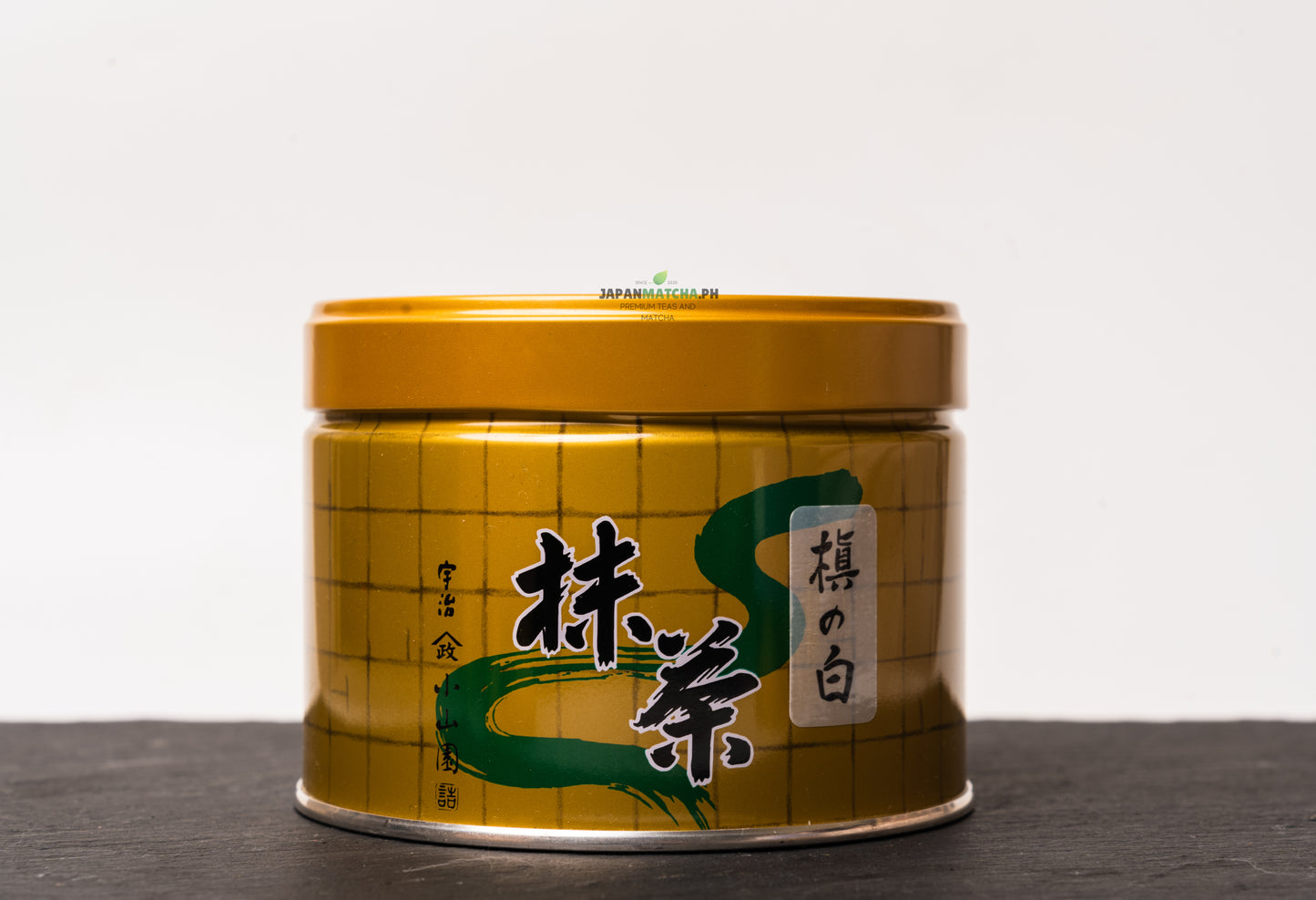JapanMatchaPh
Matcha Maki No Shiro by Yamamasa Koyamaen
Matcha Maki No Shiro by Yamamasa Koyamaen
Yamamasa Koyamaen’s entry-level usucha tea offers a pleasant experience even when drunk on its own, although it is also an excellent choice for making matcha beverages or desserts. It has depth of flavor and is full-bodied yet also reserved and well-balanced. Astringent flavors are conveyed by amino acids, and there’s a hint of bitterness in the aftertaste. When prepared as an usucha, make sure the water is at an appropriate temperature (80-85°C), as bitter notes might appear when using water at a lower temperature.
Read More
Read More
Place of origin: Kyoto Prefecture, Japan
The meaning of Maki no Shiro "槇の白" :
"Maki" (槇) is the character for cypress or cedar, though it is also used as a general term for evergreen coniferous trees like "hinoki" (Japanese cypress).
◆The general notes of the usage of "mukashi" and "shiro":
The expressions "Mukashi" and "Shiro" at the end of tea names have a grading connotation and are used to distinguish between thick and thin teas, respectively.
Only "Mukashi" was likely to have been used originally, with the expression "Shiro” coming into use later on.
"Mukashi" is said to be a combination of the Chinese characters for "twenty" (廿) and "day" (日). Crucially, March 20th (廿日) of the lunar calendar is when it was said that the very best tea is picked.
"Shiro" became common during the reign of the third shogun, Tokugawa Iemitsu, and is said to have originated when the feudal lords of the time actively asked Uji tea masters to make their tea “thin" or "light". It is not clear what the expression “shiro" specifically meant at that time, but it is thought to have referred to the differences in taste, as records show that Furuta Oribe preferred dark green tea while Kobori Enshu preferred it to be lighter.
Perhaps the difference between 'dark' and 'light' tea can also be explained by the difference in the preparation methods of the tea in Uji.
Other theories as to the origins of the words “mukashi" and “shiro" exist, but it can be said with reasonable confidence that the word “mukashi" has been used since ancient times, with the word “shiro" coming into use from the Edo period onwards. Later generation tea masters then replaced the traditional word “mukashi" with the term “shiro," both of which had previously been used to describe the grades of the tea, and made it commonplace.
In any case, it is not totally clear how the times and changes in the history of the tea ceremony could have affected the meaning of “shiro" or "mukashi". However, they are words that reflect the trends and changes of the times and have been carried over to the present day.
Out of stock
Couldn't load pickup availability
Share







